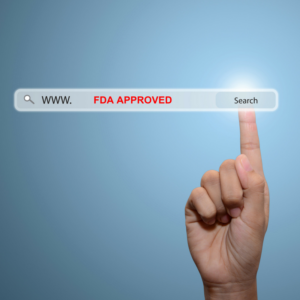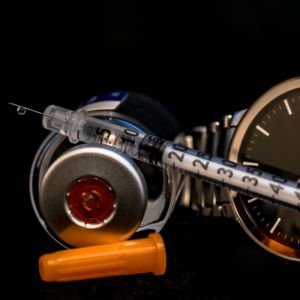by Gabriel Levitt, President, PharmacyChecker.com and Prescription Justice | Jul 6, 2018 | FDA enforcement
 Last week, I published an article about new cooperation between Internet companies and the FDA undertaken to supposedly stamp out illegal opioid sales on the Internet, yet slides consciously into stopping imports of safe, lower-cost medicines. The article talked about the FDA’s Online Opioid Summit, which was held last Wednesday.
Last week, I published an article about new cooperation between Internet companies and the FDA undertaken to supposedly stamp out illegal opioid sales on the Internet, yet slides consciously into stopping imports of safe, lower-cost medicines. The article talked about the FDA’s Online Opioid Summit, which was held last Wednesday.
That summit was covered effectively (as much as possible) in this article from Tarbell to uncover further proof that the agency is, in fact, targeting online sales of regular, lower-cost medicines, which are imported for personal use. Reporter Michael McAuliff noted that the so-called public summit was mostly closed-door and very secretive. Reporters were not invited. Pharma, however, was well represented.
Apparently, it was the Internet companies who wanted privacy, perhaps to conceal efforts at stopping opioid sales on their platforms to not tip off the drug dealers. It could also be that they are ashamed of bowing to demands to censor content that Big Pharma/the FDA finds objectionable. Time will tell.
To his credit, Mr. McAuliff asks how big of a contributor to illegal opioid sales the Internet actually is. According to a division of the Centers for Disease Control and Prevention, only one tenth of one percent (0.1%) of illegally obtained prescription narcotics (opioids) are purchased online.
According to staff at the Internet Association, a trade group that represents about 40 large Internet firms, including Microsoft, Google, Amazon, Facebook, and Go Daddy, 3.4% of people abusing opioids obtain them from online sources. I have yet to find the survey, but will try to do so and write about it soon.
So how do we know that actions taken by the FDA to curtail illegal opioid sales online are being used against safe personal drug importation as well? The best example is the increased numbers of prescription orders being seized by the FDA using funding by Congress that was appropriated for stopping illegal opioid imports, particularly the drug Fentanyl and its analogs. As Tarbell finds, most such seizures are not opioids but regular prescription medicines.
The Tarbell article quotes FDA Commissioner Scott Gottlieb owning up to this:
“We’ll use [the increased funding from Congress] to interdict more illegal products flowing across our borders, including products ordered online, as well as shifting more of our criminal investigative resources to target these online sales. This is a conscious policy decision by the FDA, and we believe these online sales represent one of the highest areas of risk facing Americans right now.”
Tens of thousands of deaths occur each year from opioid overdose. A small fraction of those drugs were purchased online and those sales must be stopped! However, the tragedy of opioid abuse should not be used like this to stop people from getting more affordable medicines from Canada and other countries.
Tagged with: Enforcement, opioids
by Gabriel Levitt, President, PharmacyChecker.com and Prescription Justice | Jun 26, 2018 | Internet Censorship
 This past month, Congress passed a flurry of bills dedicated to stopping the devastation of the opioid crisis. One focus is on stopping illegal opioid imports from coming in though the U.S. mail. The Synthetics Trafficking and Overdose Prevention Act, which passed in the House, is one such bill. But as I wrote in the The Hill last year, the STOP Act could also enable the FDA to more easily prevent Americans from importing lower-cost, safe and effective medicines from Canada and other countries.
This past month, Congress passed a flurry of bills dedicated to stopping the devastation of the opioid crisis. One focus is on stopping illegal opioid imports from coming in though the U.S. mail. The Synthetics Trafficking and Overdose Prevention Act, which passed in the House, is one such bill. But as I wrote in the The Hill last year, the STOP Act could also enable the FDA to more easily prevent Americans from importing lower-cost, safe and effective medicines from Canada and other countries.
The FDA is also fighting the opioid crisis by scrutinizing the Internet as a channel of illegal sales. That, too, could lead to the curtailment of access to lower-cost, imported medicines from pharmacies, ones which don’t sell opioids or controlled drugs at all, but do help people afford medicines.
Ideally, people who use a search engine, such as Google, find information based on an objective search algorithm. With tens of millions of Americans not filling prescriptions due to high prices here at home, many are Googling to find and order cheaper medication from international online pharmacies. (more…)
Tagged with: Enforcement, Google, U.S. Food and Drug Administration, Volokh Conspiracy
by Gabriel Levitt, President, PharmacyChecker.com and Prescription Justice | Jun 18, 2018 | Drug Safety
 I write this post about insulin with ambivalence and frustration, but also hope. The diabetes patient and activist community is rightfully seething, screaming at the top of their lungs about high insulin costs in America. One young man stands out in my mind. He recently died because he could not afford his insulin, and now his mother bravely speaks out about her son’s death—an example of why drug prices are a national crisis.
I write this post about insulin with ambivalence and frustration, but also hope. The diabetes patient and activist community is rightfully seething, screaming at the top of their lungs about high insulin costs in America. One young man stands out in my mind. He recently died because he could not afford his insulin, and now his mother bravely speaks out about her son’s death—an example of why drug prices are a national crisis.
In a March article in Insulin Nation, the journalist/editor Audrey Farley and I discussed the issue of buying more affordable insulin online from pharmacies located in Canada and the U.K. She found that many of her readers were doing so and wanted to let them know how to go about it safely.
One carton of Lantus Solostar (5 pens of 3ml each), a long-acting insulin made by Sanofi Aventis in Germany, goes for about $430 at a CVS in Brooklyn, New York. At Rexall Drugs in Toronto, the price is $84.99. That’s 80% less. Until recently, a small number of Canadian pharmacies in our Verification Program sold it for about $180. The online Canadian price is higher because of the fees associated with special packaging and shipping – but it’s still 56% less than the U.S. price. For those prices, Americans living with diabetes could save a couple of thousand dollars a year; and those who can’t afford it here at all could stay alive.
Insulin is a temperature-sensitive medication and, because of that, requires significant precautions when shipping. To prevent it from degrading requires special packaging. Effective patient communication is also necessary. Because of our recent updates to our refrigerated medications policy, one that places stricter requirements on pharmacies in the PharmacyChecker Verification Program, most will likely choose not to sell insulin to Americans— at least not for a while. Here’s why… (more…)
Tagged with: #insulin4all, FedEx, Insulin, PharmacyChecker Verification Program
 Last week, I published an article about new cooperation between Internet companies and the FDA undertaken to supposedly stamp out illegal opioid sales on the Internet, yet slides consciously into stopping imports of safe, lower-cost medicines. The article talked about the FDA’s Online Opioid Summit, which was held last Wednesday.
Last week, I published an article about new cooperation between Internet companies and the FDA undertaken to supposedly stamp out illegal opioid sales on the Internet, yet slides consciously into stopping imports of safe, lower-cost medicines. The article talked about the FDA’s Online Opioid Summit, which was held last Wednesday.

 This past month,
This past month,  I write this post about insulin with ambivalence and frustration, but also hope. The diabetes patient and activist community is rightfully seething, screaming at the top of their lungs about high insulin costs in America. One young man stands out in my mind. He recently died because he could not afford his insulin, and now his mother
I write this post about insulin with ambivalence and frustration, but also hope. The diabetes patient and activist community is rightfully seething, screaming at the top of their lungs about high insulin costs in America. One young man stands out in my mind. He recently died because he could not afford his insulin, and now his mother 